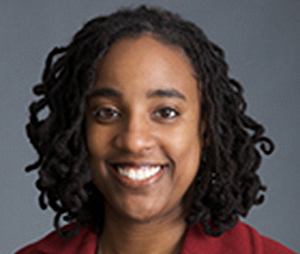
Two GULC professors, Kristin N. Henning, above, and Wallace Mlyniec, received D.C. Lawyers for Youth honors.
D.C. Lawyers for Youth honored Georgetown University Law Center professors Kristin N. Henning and Wallace Mlyniec for their work as directors of the Juvenile Justice Clinic on Nov. 4.
The JJC, which has educated nearly 700 students, formed in 1973 as one of the first legal clinics of its kind, providing both legal representation for youth charged with delinquency in D.C. as well as clinical education and learning opportunities for law students that defend them in court.
Henning and Mlyniec received honors at DCLY’s Fall Ball for Youth Justice, where the organization also announced the creation of the Henning-Mlyniec Award for Youth Justice, which will be awarded annually starting in 2016 to advocates and attorneys who have advanced youth justice through their careers.
GULC and JJC alumni founded the DCLY in 2007. The organization seeks to reform the District’s juvenile justice system through advocacy for youth development and legal representation. Mlyniec served as JJC director since the clinic’s inception until Henning took over in June 2015.
Mlyniec said he was surprised he received the award.
“When I grew up, you grew up to work hard and never expect any kind of award,” Mlyniec said. “To get an award for going to work every day and especially to a job you love as well, to have this organization name an award after Kris and me, is somewhat overwhelming.”
He additionally highlighted the JJC’s mission and the practical learning opportunities it provides to law students. Students receive degree credit for participating in the program, and the clinic provides training for non-student lawyers in the field of juvenile justice.
“The court appoints us to represent kids accused of crimes, and then we assign students to be the principal lawyers,” explained Mlyniec, “The students then actually go out and investigate the cases, negotiate settlements and try cases in the D.C. Superior Court.”
Mlyniec also spoke about his respect for JJC students and the dedication they commit to legal work in service of others.
“They are some of my heroes. They work hard and try harder than any other law students and graduate with a moral obligation to do pro bono work and support the work that we do here,” Mlyniec said. “They are the ones who really deserve the award.”
Henning echoed Mlyniec’s sentiments, highlighting the rewards of teaching at the JJC.
“A teacher’s greatest joy is less in the teaching as it is in the learning,” Henning said. “One of the greatest joys is learning from our students, and a number of the folks acting in the DCLY are our former students. … For me, the work captures both my commitment to social justice and my intellectual interest.”
Henning also emphasized the need for social justice work and encouraged undergraduate student involvement in organizations like After School Kids that work with adjudicated D.C. youth.
“Our country and the state of our country and its success has to be measured not by how well the wealthy are doing, but by how we treat the ones who are most vulnerable and the ones who are the most at risk,” Henning said. “Children in the juvenile court system are some of these people.
R. Daniel Okonkwo (LAW ’05) is the executive director of DCLY and participated in the JJC program when he was a GULC student.
“Professor Henning and Mlyniec were instrumental in the founding of D.C. Lawyers for Youth,” Okonkwo wrote in an email to The Hoya. “We wanted to impact change at the policy level so young people like those we represented in the clinic would have better life outcomes as a result of our work on juvenile justice reform in the District.”
According to Okonkwo, one of the most valuable things taught at the JJC is that working in this field gives lawyers the ability to improve the lives of others.
“DCLY’s work is important because at the core of DCLY’s work on behalf of young people is the belief that sometimes kids make mistakes,” Okonkwo wrote. “We believe that none of our city’s children or their entire lives should be defined by that mistake. A system that still holds kids accountable but will also help them to bounce back more resilient and more equipped to handle life can avoid making those same types of mistakes again.”














